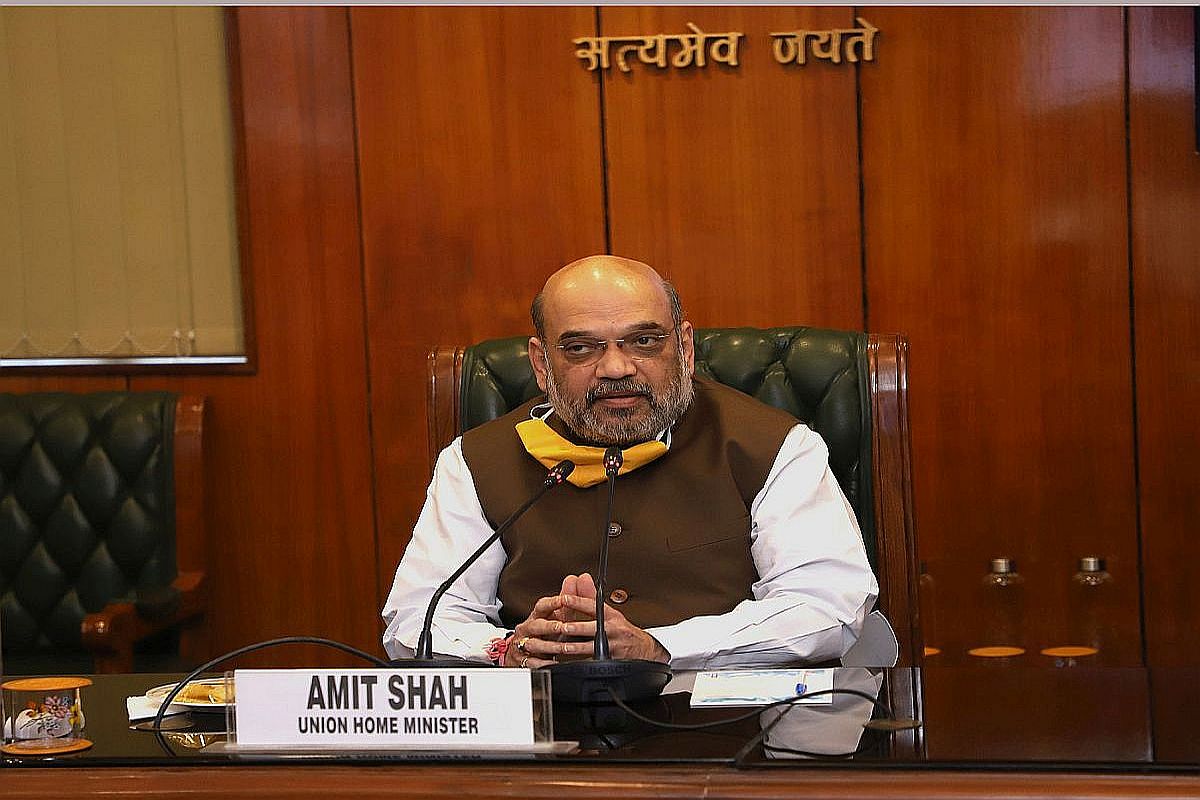Nadda, 5 others take oath as RS members
Five others who also took oath as members of the Rajya Sabha today are Ashokrao Shankarrao Chavan, Chunnilal Garasiya, Anil Kumar Yadav Mandadi, Sushmita Dev and Mohammad Nadimul Haque.
Answering questions about when the unified civic body would go for elections, he said “Are you afraid that you will lose elections in six months.”

Union Home Minister Amit Shah. (File Photo: PIB)
The Delhi Municipal Corporation Amendment Bill, 2022 which seeks to re-unite Delhi’s three civic corporations today received Parliamentary approval when the Rajya Sabha passed it by a voice vote.
Replying to a debate on the Bill, already passed by the Lok Sabha, Home Minister Amit Shah said the Bill was brought as the three civic bodies received “step-motherly” treatment from the Delhi Government, and were denied their rightful funding.
He said, first, the Delhi Municipal Corporation was trifurcated 10 years ago without any thought and then it was starved of funds by the Aam Aadmi Party (AAP) Government of Delhi, which prevented them from discharging their responsibilities. The civic bodies followed different policies and their employees went on frequent strikes.
Advertisement
Shah told the members raising questions about competence of the Central Government to bring the legislation, he said Article 239AA of the Constitution empowered the Centre to make laws about Delhi.
Shah said there was no violation of federal principles as Delhi was not a full-fledged State. Such a law could not be brought for other States, he said. “Those who say we are power-hungry should see their image in a mirror,” he said.
Several members said the Government proposed to reduce the number of corporaters in the three corporations from 272 to 250 and this process of delimitation could take one year. The unification of the three bodies would increase centralization, they said.
Answering questions about when the unified civic body would go for elections, he said “Are you afraid that you will lose elections in six months.”
He said the unification of the corporations would reduce administrative expenditure. A special officer, and a not a political person, would be appointed to run the body, as provided in the original law.
The Home Minister said the Centre had made adequate provisions for Delhi. Besides the normal funding, the Centre spent Rs 17,000 crore on Delhi including its police every year.
He said Abhishek Singhvi of the Congress talked of an attack on democracy but should remember what the Congress Government had done in 1975 when thousands were jailed and newspapers denied freedom of expression.
He said parties like Shiv Sena and Trinamul Congress could not talk of postponement of civic elections as they had done the same in Maharashtra and West Bengal.
The Home Minister said if the AAP Government had paid Rs 19,000 crores to the civic bodies, things would have been normal. The civic bodies were denied their due so that people could suffer and the AAP could reap dividend in the civic polls.
Defending his party, Sanjay Singh (AAP) said the Modi Government had paid to Delhi Government a fixed amount of Rs 325 crores each year. Several members demanded that the Bill be referred to a Standing Committee. All Opposition amendments were rejected by voice-vote.
Advertisement